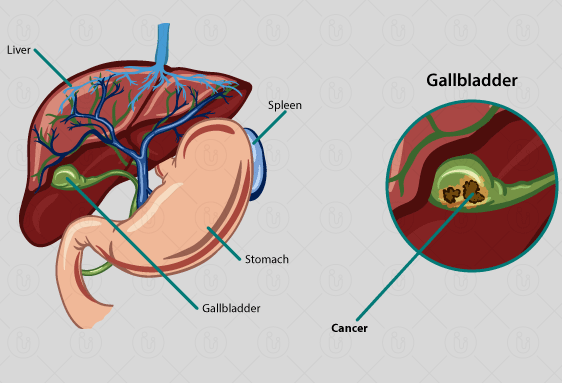Gallbladder Cancer Treatment in Hamburg
Search and Compare the Best Clinics and Doctors at the Lowest Prices for Gallbladder Cancer Treatment in Hamburg

Find the best clinics for Gallbladder Cancer Treatment in Hamburg
No pricing info available
Ukraine offers the best prices Worldwide
Price: $ 2,487
University Medical Center Hamburg-Eppendorf, located in Eppendorf, Hamburg, Germany offers patients Gallbladder Cancer Treatment procedures among its total of 288 available procedures, across 30 different specialties. Currently, there's no pricing information for Gallbladder Cancer Treatment procedures at University Medical Center Hamburg-Eppendorf, as all prices are available on request only. There is currently a lack of information available on the specialists practicing at the Clinic, and they are accredited by ISO 9001:2008
WHY US?
At Medijump, we're making medical easy. You can search, compare, discuss, and book your medical all in one place. We open the door to the best medical providers worldwide, saving you time and energy along the way, and it's all for FREE, no hidden fees, and no price markups guaranteed. So what are you waiting for?

Free

Best Price

Widest Selection

Risk-Free
What you need to know about Gallbladder Cancer Treatment in Hamburg

Different types of treatments are available to patients with gallbladder cancer. The main types of treatment include surgery, radiation therapy, and treatment to help with symptoms. The type of treatment that is best for you depends on several factors, including the type of gallbladder cancer you have, the stage of cancer, your overall health, and your preferences. During your gallbladder cancer treatment, you will be looked after by a team of doctors who specialize in different aspects of treatment, including a medical oncologist, a radiation oncologist, a gastroenterologist, and a surgeon.
What does the Procedure Involve?
Surgery is the main treatment for early-stage gallbladder cancer. The following are types of surgery performed to treat gallbladder cancer:
-
Cholecystectomy is a surgical procedure to remove the gallbladder. In some cases, a small amount of liver that surrounds the gallbladder may also be removed (called an extended cholecystectomy).
-
Radical gallbladder resection involves the removal of the gallbladder, a part of the liver near the gallbladder, all or part of the ligaments between the intestines and the liver, the common bile duct, as well as the lymph nodes around the pancreas and blood vessels near the area.
Surgery is generally performed under general anesthetic, so you will not feel anything throughout the procedure.
Radiation therapy
Radiation therapy uses high-energy X-rays or other particles to destroy cancer cells or to stop them from growing. There are two types of radiation therapy: external and internal. External radiation therapy uses a machine outside of the body, while internal radiation therapy uses a radioactive substance sealed in a device that is placed near or directly into cancer. The most common type of radiation therapy for gallbladder cancer is external radiation therapy.
Chemotherapy
Chemotherapy uses drugs to stop cancer cells from dividing. It can also kill cancer cells. The drug can be injected into a vein or muscle or taken by mouth. In some cases, the drugs may also be placed directly into the affected organ.
Treatment to help with symptoms
Also known as palliative care, this type of treatment aims to slow down cancer and to help you manage symptoms that may occur. For instance, if your bile ducts are blocked due to advanced gallbladder cancer, your surgeon can place a stent in a duct in order to hold it open or reroute bile ducts around the blockage.
How Long Should I Stay in Hamburg?
For surgical procedures, you need to stay in the hospital for 1 to 3 days and stay in Hamburg for at least 7 to 14 more days for follow-up checkups. For radiation therapy and chemotherapy, your length of stay depends on your treatment plan (how many cycles of therapy you need).
What's the Recovery Time?
The recovery time for surgical procedures may take 2 to 6 weeks, depending on the type of surgery you underwent and the technique your surgeon used. Side effects after radiation therapy and chemotherapy usually subside within several weeks or months.
What About Aftercare?
Your medical team will give you a set of aftercare instructions after any type of treatment. It is important that you follow all of the instructions carefully to avoid complications. The instructions may include a special diet, light exercises, wound care (for surgical procedures), and restrictions.
Make sure to eat a healthy and balanced diet, avoid bad habits (such as smoking), and exercise regularly after you have recovered. You will also need checkups with your doctor for the rest of your life. Regular medical care is important to stay healthy. Regular checkups are necessary to ensure cancer has not come back.
What's the Success Rate?
Gallbladder cancer treatment can be effective and successful. In many cases, treatments may even put you in remission (when cancer cannot be detected in the body and there are no symptoms).
Surgery, chemotherapy, and radiation therapy all come with potential risks and side effects. These include infection, bile leakage, and damage to a bile duct, bleeding, swelling, blood clots, heart problems, pneumonia, hematoma, nausea, vomiting, and hair loss.
Are there Alternatives to Gallbladder Cancer Treatment?
Some people choose to take part in a clinical trial. A clinical trial is a research study that is used to obtain more information on new treatments or to improve current treatments. Currently, treatments called radiation sensitizers are being tested. Radiation sensitizers include hyperthermia therapy (a treatment in which high temperatures are used to kill cancer cells) and radiosensitizers (a treatment that involves the use of drugs that can make tumor cells more sensitive to radiation therapy). Patients who take part in clinical treatment help improve the way cancer will be treated in the future.
What Should You Expect Before and After the Procedure
Before you receive treatment, your gallbladder cancer can cause uncomfortable symptoms, may spread to other parts of the body, and may even become dangerous. After treatment, your chance of surviving the cancer is increased. In some cases, you may even be put in remission, meaning no cancer cells are found in your body.
Whilst the information presented here has been accurately sourced and verified by a medical professional for its accuracy, it is still advised to consult with your doctor before pursuing a medical treatment at one of the listed medical providers
No Time?
Tell us what you're looking for and we'll reachout to the top clinics all at once
Enquire Now

Popular Procedures in Hamburg
Prices Start From $961

Prices Start From $32

Prices Start From $2,104

Prices Start From $2,487

Recommended Medical Centers in Hamburg for Gallbladder Cancer Treatment

- Interpreter services
- Translation service
- Religious facilities
- Medical records transfer
- Medical travel insurance
- Health insurance coordination
- TV in the room
- Safe in the room
- Phone in the room
- Private rooms for patients available

- Interpreter services
- Translation service
- Religious facilities
- Medical records transfer
- Medical travel insurance
- Health insurance coordination
- TV in the room
- Safe in the room
- Phone in the room
- Private rooms for patients available

- Interpreter services
- Translation service
- Religious facilities
- Medical records transfer
- Medical travel insurance
- Health insurance coordination
- TV in the room
- Safe in the room
- Phone in the room
- Private rooms for patients available
Gallbladder Cancer Treatment in and around Hamburg
About Hamburg
Hamburg is the second-largest city in Germany. It is a port city and it is also the second-busiest port in Europe. Famous for its parks and canals, this eclectic city is filled with iconic architecture, delicious cuisines, music, and lively nightlife. Hamburg also enjoys an excellent reputation in the field of medical tourism. The hospitals in the city boast highly-trained specialists offering remarkable standards of medical care. From prevention and diagnosis to treatment and aftercare, medical tourists are sure to receive the best care. Numerous hospitals and clinics provide the highest standard of healthcare as well as world-class medical care around the clock. Cutting-edge hospitals, experienced specialists, and advanced techniques in line with the very latest scientific findings are the reason why its healthcare sector is thriving.
Popular Parts of Hamburg
As a port city, much of the city’s character comes for its port, which is why the harbor tour is very popular. The harbor tour allows visitors to admire the city from a different perspective. Those who love art should visit Hamburger Kunsthalle, which is the city’s premier art gallery offering a wide collection of Germany’s master painters. Any visitor who loves shopping should go to Altona, an elegant neighborhood where visitors can find an array of stylish boutiques, amazing restaurants, and bars. Hamburg is also known as one of the nightlife capitals of Europe. The center of the city’s nightlife is located in St. Pauli, a neighborhood filled with live music venues, dance parties, pubs, and cocktail bars.
Transport in Hamburg
Hamburg Airport is the international airport in Hamburg, which connects the city with numerous countries in Europe and the Middle East. Public transportation in Hamburg is efficient and convenient. Buses operate around the clock, including a special night bus (Nachtbus) service. The U-Bahn and S-Bahn trains are integrated, making it easy to get around the city. Visitors who want to get around with the U-Bahn and S-Bahn train can buy an individual ticket or an All-Day ticket, which is reasonably priced. Taxis are easily available and are reliable.
Visas in Hamburg
Since Germany is part of the Schengen Area, citizens of several countries, such as Australia, Canada, and the US, can visit and stay in the country without a visa for up to 90 days. Citizens of other countries are required to apply and obtain a visa prior to their arrival. It is recommended to always check the requirements for the visa application before applying.
Weather in Hamburg
Summer, starting from June to August, has an average temperature of 24°C, making it a popular time to visit the city. However, the temperatures can rise to 30°C on some very hot days. Winter can be very cold, with the temperatures dropping below 0°C. The seasons of spring (March-May) and autumn (September – October) has pleasant weather with warm temperatures.
Additional Info
- Local Currency: The local currency is the Euro (EUR). 1 EUR converts to approx. 1.12 USD.
- Money & Payments: ATMs are widespread around the city. Credit cards are widely accepted and tipping is common.
- Local Language: German is the official language. Most people, particularly in tourist areas, will speak little English.
- Local Culture and Religion: The largest religion is Christianity and Islam is the second-largest religion. Judaism, Buddhism, and Hinduism are also freely-practiced.
- Public Holidays: Some of the most celebrated public holidays are New Year’s Day, Day of German Unity, Reformation Day, and Christmas Day.
Popular Searches
- Plastic Surgery in Thailand
- Dental Implants in Thailand
- Hair Transplant in Thailand
- Breast Augmentation Thailand
- Gastric Sleeve in Thailand
- Gender Reassignment Surgery in Thailand
- Laser Hair Removal in Bangkok
- Botox in Bangkok
- Dermatology in Bangkok
- Breast Augmentation in Bangkok
- Coolsculpting in Bangkok
- Veneers in Turkey
- Hair Transplant in Turkey
- Rhinoplasty in Turkey
- Stem Cell Therapy in Mexico
- Rhinoplasty in Mexico
- Liposuction in Mexico
- Coolsculpting in Tijuana
- Rhinoplasty in Korea
- Scar Removal in Korea
- Gastric Sleeve in Turkey
- Bone Marrow Transplant in India
- Invisalign in Malaysia
- Plastic Surgery in the Dominican Republic
- Tummy Tuck in the Dominican Republic
- Plastic and Cosmetic Surgery in Poland
- Rhinoplasty in Poland
- Hair Implant in Poland
- Dental Implants in Poland
- IVF in Turkey
